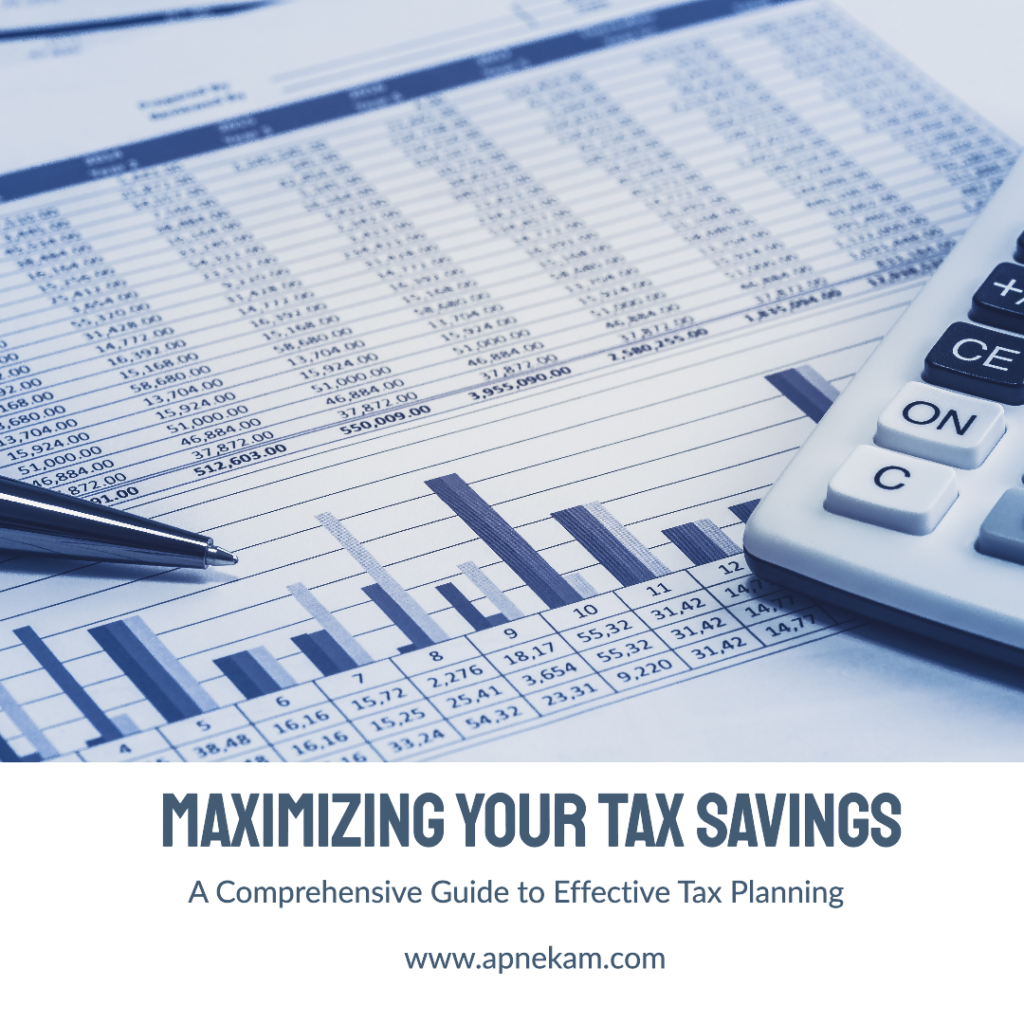A Guide to Effective Tax Planning
Hey there, fellow financial enthusiasts! Today, let’s dive into the world of tax planning. Whether you’re a seasoned investor or just starting to build your financial empire, understanding how to optimize your tax strategy can make a significant difference in your bottom line. So, grab your favorite beverage, sit back, and let’s explore the ins and outs of tax planning together.
Understanding Tax Planning: It’s More Than Just Filing Taxes
Tax planning is not just about filling out forms at the end of the year; it’s a proactive approach to managing your finances throughout the year to minimize your tax liability legally. It involves strategic decisions and actions aimed at optimizing your financial situation while staying compliant with tax laws.
Tax Deductions and Credits: Your Best Friends in Tax Planning
One of the fundamental aspects of tax planning is leveraging tax deductions and credits to reduce your taxable income and overall tax bill. Here are some key deductions and credits you should be aware of:
- Deductible Expenses: Deductions for expenses such as mortgage interest, charitable contributions, and medical expenses can help lower your taxable income. IRS Publication 535 provides detailed information on deductible expenses.
- Tax Credits: Tax credits, such as the Earned Income Tax Credit (EITC) and Child Tax Credit, directly reduce your tax liability dollar-for-dollar. The IRS website offers resources on available tax credits and eligibility criteria.
Retirement Accounts: Your Secret Weapon for Tax Efficiency
Contributing to retirement accounts is not only a smart way to save for the future but also a powerful tax planning tool. Here’s how retirement accounts can benefit your tax strategy:
- Tax-Deferred Growth: Traditional retirement accounts like 401(k)s and Traditional IRAs allow your investments to grow tax-deferred until withdrawal, reducing your current taxable income.
- Tax-Free Withdrawals: Roth retirement accounts, such as Roth IRAs and Roth 401(k)s, offer tax-free withdrawals in retirement, providing tax diversification and flexibility.
Advanced Tax Planning Strategies: Going Beyond the Basics
Once you’ve mastered the basics of tax planning, it’s time to explore advanced strategies to further optimize your tax situation. These strategies may require more effort and expertise but can yield significant tax savings in the long run.
Tax-Loss Harvesting: Turning Losses Into Tax Savings
Tax-loss harvesting involves strategically selling investments that have experienced losses to offset capital gains and reduce your taxable income. By harvesting losses, you can minimize your tax liability while maintaining your overall investment strategy.
Estate Planning: Passing on Wealth Tax-Efficiently
Estate planning is not just for the ultra-wealthy; it’s essential for anyone who wants to ensure their assets are distributed according to their wishes while minimizing estate taxes. Strategies like gifting, establishing trusts, and leveraging estate tax exemptions can help preserve your wealth for future generations.
Working With a Tax Professional: The Key to Success
While you can certainly navigate tax planning on your own, working with a qualified tax professional can provide invaluable expertise and peace of mind. A tax advisor can help you develop a personalized tax strategy, navigate complex tax laws, and optimize your financial situation for maximum tax efficiency.
Choosing the Right Tax Advisor
When selecting a tax advisor, look for credentials such as Certified Public Accountant (CPA) or Enrolled Agent (EA), experience with tax planning, and a track record of client satisfaction. Don’t hesitate to schedule consultations with multiple advisors to find the right fit for your needs.
Stay Informed and Empowered
Tax laws and regulations are constantly evolving, so staying informed is key to maintaining an effective tax strategy. Keep up with tax-related news, changes in legislation, and updates from the IRS to ensure you’re making informed decisions and maximizing your tax savings opportunities.
Resources for Taxpayers
- IRS Website: The official website of the Internal Revenue Service offers a wealth of resources, forms, and publications to help taxpayers navigate the tax landscape.
- Tax Foundation: The Tax Foundation provides research and analysis on tax policies and their implications for taxpayers, policymakers, and the economy.
So, there you have it—your crash course in tax planning! With a solid understanding of tax strategies and the right professional guidance, you can take control of your finances and keep more of your hard-earned money in your pocket. Happy tax planning!

